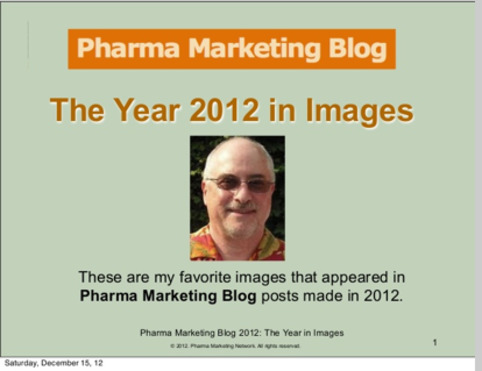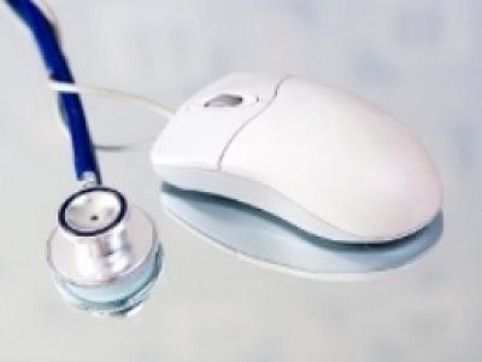 Your new post is loading...

|
Scooped by
rob halkes
February 27, 2013 8:25 AM
|
An entry in the ‘100 Steps for Pharma‘ series It's easier to sharpen a pencil than it is to write a poem with it. It's easier to clean a musical instrument than it is to play a sonata on it. ... Whilst sectors of the health conversation still appear to have the leisure to ‘devote themselves more to the spectacle of thought than to thought itself’, pharma clearly is not one of them. Revenue gaps caused by drugs going off patent are harder to close; margins are squeezed; budgets are under pressure; costs are closely managed; restructuring is everywhere. No pharma company should look at its portfolio of social presences and think ‘job done’. What job do they do? Are they advancing the company’s key business objectives, or are they merely ’accelerating in a void, because all the goals of liberation are already behind [them]‘? If you don’t know where your destination is, it is likely that you are heading in the wrong direction.

|
Scooped by
rob halkes
February 21, 2013 10:12 AM
|
Known for decades as a shoe company, Nike is undergoing a digital revolution. In recent years, it's launched everything from apps that are standard issue on the iPhone to wearable devices to web services.

|
Scooped by
rob halkes
February 17, 2013 12:47 PM
|
If the new about an Apple iWatch turns out to be reality healthcare marketers had better be ready because the healthcare applications are endless for device like this. Imagine a watch reminding y...

|
Scooped by
rob halkes
February 15, 2013 9:10 AM
|
By Phil Taylor Pharmaceutical companies and other players in the life sciences industry need to get to grips with new and potentially disruptive technologies to help them emerge from a challenging operating environment, says a new report. The report can be found here http://www.accenture.com/us-en/blogs/life-sciences-blog/archive/2013/01/24/accenture-technology-vision-for-life-sciences-the-tech-trends-worth-mastering.aspx ; and is summarised in this brief: Trends that will influence your business Over the next three to five years, there are six technology trends that will significantly impact how life sciences companies use technology to drive growth and increase efficiency: Context-based services that know where you are and what you are doing will drive the next wave of digital services.Converging data architectures will encourage focus on patient outcomes by combining information from a number of sources.Industrialized data services will allow for information to be shared—but it must be managed strategically.Social-driven IT will be a powerful tool for life sciences companies, both internally and externally.PaaS-enabled agility will shift the emphasis from cost cutting to business innovation by using “Platform as a Service” capabilities.Orchestrated analytical security will help businesses deal with security breeches, data platforms and device management. Next steps for technology leaders Most life sciences companies will be hard pressed to understand and serve potential consumers and providers in emerging and developed markets without staying on top of all of these trends. We recommend technology leaders: 1. Prioritize the technology trends.
2. Define an information strategy.
3. Bolster data services and management capabilities.
4. Encourage use of social technologies across the organization.
5. Define a cloud strategy.
6. Change the security paradigm.

|
Scooped by
rob halkes
February 15, 2013 8:42 AM
|
Accenture’s biopharmaceutical industry study highlights that from 2013 onward, the negative effect from sales lost due to the patent cliff will lessen and sales will improve.

|
Scooped by
rob halkes
February 14, 2013 8:07 AM
|
Savvy, influential patients have pharmas attention and are growing relationships with industry. How firms have just begun to tap the potential of this emerging segment [Excerpt] While many pharma and device firms remain on the sidelines, understandably so, the lure of gaining a rapport with patients on social networks is reason enough for some to venture forth, despite the unknowns.
Over the past year or so, the role of patients as an influence and information channel for pharma has blossomed. Experts on the trend say it's comparable to the rise of key opinion leaders (KOLs) in the physician world—doctors, typically from academic medicine, who reach out to other physicians likely to prescribe a product.
Two main groups of patient advocates have experience with products. The first receives training from boutique agencies like HealthTalker and Snow Companies, which specialize in word-of-mouth communications and use the real-life stories of patients to deliver marketing messages.
The second and perhaps most visible segment of patient advocates are those, like Hernandez and Sparling in the diabetes realm or Dave deBronkart (aka e-Patient Dave) in cancer, who are especially adept at creating content.
The foremost bloggers have become, effectively, small communications firms unto themselves, says Jack Barrette, founder and CEO of Wego Health, an online patient network that also acts as a liaison between its “health activists” and pharma to create educational programs.
“[The high-profile advocates and bloggers] want to communicate very valuable content and have created an agency structure—they're professionals, in a good way, and have managed to carve out areas where they can be seen as agency-like,” Barrette says.
Beyond that top layer is a group who also blog but don't necessarily support themselves through their advocacy. It's that group, which Barrette calls the health activist middle class, that companies are now learning from: “They're so powerful because their numbers are so vast, and they're trusted because they're not semi-professionals.”
There's a third tier online, “who don't even consider themselves patients,” observes Wendy Blackburn, EVP, Intouch Solutions. Around a third of US adults use social media as a health resource, according to a 2012 survey of 1,060 US adults by PricewaterhouseCoopers, and most probably fall into this third group.
“It's someone who maybe just got diagnosed and doesn't even realize there's this discussion we're having about pharma and social media,” says Blackburn. “They just go online for information.”
Participation is not without its pitfalls. For instance, sources say patient-generated content is vulnerable to the same creative restrictions as most healthcare marketing.
Marketers playing in social media also need to stay vigilant and ride the waves of the shifting digital landscape, such as when Facebook abruptly changed course in 2011 and forced pharma pages to open their walls to user comments, prompting several drugmakers to shutter theirs rather than commit to 24/7 monitoring of posts.
“If pharma can drive patients to accurate information, it furthers the goal of optimizing treatment experience and promoting adherence,” says Tara Rice, manager of health education for the agency HealthEd. Rice points to a 2012 Wolters Kluwer survey that found 65% of people who turn to the internet with medical questions say they trust the information they find, “which is scary, because there's a lot of inaccurate information online.”
Nevertheless, patient advocates and some pharma and device companies seem to be finding ways to work together.

|
Scooped by
rob halkes
February 13, 2013 1:34 PM
|
An entry in the '100 Steps for Pharma' series Millions of words have been written over recent years across media channels about the relative performance of pharmaceutical companies in social enviro...

|
Scooped by
rob halkes
February 12, 2013 10:11 AM
|
Revisions in the final transparency rule will give physicians more time to resolve payment amounts and won't require disclosure of indirect pay from accredited education programs.

|
Scooped by
rob halkes
January 18, 2013 11:00 AM
|
Increasingly, the development of new pharmaceuticals utilize genetic information to stratify patient...

|
Suggested by
Marie Ennis-O'Connor
January 17, 2013 8:01 AM
|
While Facebook and Twitter remain the post popular social media platforms for healtcare engagment, Pinterest is fast gaining ground.

|
Scooped by
rob halkes
January 14, 2013 1:55 AM
|
SAMPLE PAGES-PV CORPORATE REP PHARMA-JAN 2013.pdf Download this file Increasing numbers of pharmaceutical companies are seeking to redefine their relationships with patients, recasting their companies as more patient-centric.

|
Scooped by
rob halkes
January 11, 2013 6:48 AM
|
Hannah Blake interviews Doctor A Here is the first of five anonymous interviews with healthcare professionals from a range of different demographics, to find out how they typically engage with pharma. To coincide with our medical communications focus month, pharmaphorum speaks with five healthcare professionals to find out how they typically engage with pharma and their thoughts on how this could be improved in the future. Throughout this series, we are looking to learn: • How doctors typically engage with pharma companies? • What a good interaction with pharma is like? • What common characteristics define the pharma representatives with whom doctors typically have good interactions with? • Would doctors value details and data from pharma around late stage trials activity and the new drugs pipeline? • If yes, how would they like to receive this information, and through what channels? • From a trust perspective, do doctors believe that pharma companies supply information in a transparent way? • Other than drug information, what else is or could be provided by pharma companies to support a doctor’s work or create better interactions? • What one thing could pharma companies provide doctors with through engagement that would be most useful in the future? • Do modern technologies, such as tele-reach detailing and use of iPads, add value to doctor’s knowledge and interaction with pharma?

|
Scooped by
rob halkes
January 10, 2013 4:22 AM
|
To many businesses and professionals, social media can seem frivolous–a place to upload photos of your dinner and your cat. But in reality, it is a powerful
A health IT startup claims since its mobile health app to improve patient adherence hit the market in November, patient adherence has exceeded 81 percent.
Via Dan Baxter

|
Scooped by
rob halkes
January 7, 2013 11:00 AM
|
Increased Use of Twitter at a Medical Conference: A Report and a Review of the Educational Opportunities

|
Scooped by
rob halkes
December 28, 2012 5:21 AM
|
What is #pharma100? pharma, top 100 influencers in pharma. Healthcare Social Media Hashtag. Real-time Analytics.

|
Scooped by
rob halkes
December 20, 2012 3:16 AM
|
Welcome to the 1st Annual "Top Ten Internet-Smart Doctors in the World".
Now, why, you may ask, do we presume to say "World"? Because the internet, as Mr. Gates says, has made the world a global village. On the internet, one can find out many wonderful things, and, for this page, you have access to things that are happening in faraway lands, as if they were next door. Doctors are increasingly using the internet, to communicate, to educate, and to use sometimes as medical devices. And now docs are tackling social media, which a few to the Top Ten do. The Top Ten come from all over, from Australia to the Bay area. There is one from the Netherlands, one from Hungary, one from India, and one from Australia. The other six are Yanks. And they are all MDs. Characteristics that the top ten share are traits of enthusiasm for their craft, intelligence, diligence, intimate knowledge of how the net can be leveraged to benefit healthcare, and love of teaching.

|
Scooped by
rob halkes
December 16, 2012 9:23 AM
|

|
Scooped by
rob halkes
December 9, 2012 6:41 AM
|
Due to our deep-rooted pharma commercial expertise, IMS Health offers clients unparalleled pharmaceutical business process outsourcing capabilities.

|
Scooped by
rob halkes
December 7, 2012 7:08 AM
|
Pharma: from (e)detailing to physician and patient excellence, a new commercial approach. The demand for a new commercial model in Pharma is striking. Lots of talk about social media, KAM, gaming, mobile and all kinds of excellences: customer, sales and marketing. But what's the roadmap starting from the current situation of pharma's commercial business approach, to get to a new commercial relationship for the (local affiliates) of the pharmaceutical industry to its very customers? I invite you to the scetch of this. I made this outline on the basis of having gone that road and now look back on the (very) positive results. Hold yourself to your seat: it might feel like a roller coaster! But doesn't just make that all the fun? You may challenge me ;-) but thanks for your attention anyway! Rob

|
Scooped by
rob halkes
December 7, 2012 12:42 AM
|
Did off-label promotion just become legal? OBLIGATORY READING ;-) What happened? A summary On Monday, a federal appeals court in New York threw out the conviction of a pharma sales rep for promoting off-label use of a prescription drug. The court found the sales rep’s First Amendment right to free speech had been violated. Judge Denny Chin wrote:
"In the fields of medicine and public health, where information can save lives, it only furthers the public interest to ensure that decisions about the use of prescription drugs, including off-label usage, are intelligent and well-informed.” The ruling essentially follows the notion that "The more information available to everyone, the better. If physicians can discuss alternative uses of drugs, others should be able to do the same.” So far, not surprisingly, FDA has not commented on the ruling. What does it mean? What does this mean for FDA? What does it mean for patients? What does this mean for pharmaceutical companies today? If any change is to come from this, I expect it to be slow. It’s definitely something to keep an eye on. And this is just one court's decision. Future decisions for similar cases, as well as escalation to the Supreme Court, may further solidify the situation one way or the other.

|
Scooped by
rob halkes
December 6, 2012 1:36 AM
|
This article is about determining an effective marketing modeling mix for pharma and budgeting for 2013. “…building brand awareness, customer acquisition and customer retention will be the key marketing goals for 2013 budgets…” “… successful companies will be devoting more resources toward reaching online medical communities via social media…” “The most successful companies in 2013 will be the quickest – quick to gather market data, and quick to interpret that data and act.” with infographic..

|
Scooped by
rob halkes
December 6, 2012 1:23 AM
|
Cegedim Relationship Management has undertaken its third annual survey of life sciences professionals in the United States to provide a real-time snapshot of this year’s trends. This year reveals distinct concerns with the flux of the current commercial model and reinforces the support for digital solutions. Nearly three-fourths (74%) of respondents point to the changing commercial business model as the biggest issue keeping them up at night. The formidable issues of concern remain constant from 2011 to 2012, especially the evolution of the current business model which holds fast as the primary concern. Based on a scale from one to five, nearly three-fourths (74%) of respondents ranked the changing commercial business model as their first, second or third priority of concern.

|
Scooped by
rob halkes
November 28, 2012 1:22 PM
|
Emily Willingham writes:
According to this Washington Post longread by Peter Whoriskey, the bald truth about industry-funded clinical trials for new drugs is not pretty.. This history of “abuse and distortion,” even if the relative number of cases is limited, leaves consumers wondering how they can tell what’s trustworthy. What’s a consumer to do? What any consumer should always do: Caveat emptor. We can do no more than that as consumers. But for people whose therapy choices are limited to new arrivals, whose decisions are about life or prolongation of life versus impending death, not only is waiting a luxury they cannot afford, they may well be the ones whom time tests. I’m not one of those who thinks that “Big Pharma” is a monolith of evil trying to make a buck, regardless of human costs. The thousands of researchers in industry are not members of a secret cabal obsessed only with immense wealth. But if industry wants to shine up a reputation dimmed by suspect behaviors of some of its own, voluntarily turning to independent evaluation and reporting of transparent data sets is one step toward polishing away some of that tarnish. So says Emily... For a start of discussion: the reseraches who initiated the reserach, one could state they are objective researchers as well, aren't they? I have witnessed reaerchers state that all pharmaceutical research money should be transfered to "neutral and objective" reserachers to perform the reserach! I would say: who is to select them? reserachers are at leas dependent on the very job they have - and keeping up the job, at least in competition with other independent reserachers, might make them less independent..? ...

|
Scooped by
rob halkes
November 25, 2012 3:33 AM
|
As Lars Bogner, Head of Section, Digital Center of Excellence, Corporate Marketing, Leo Pharma, stated in his talk at this year’s DigiPharm event people have have thousands of conversations online everyday which could impact your brand. Are you listening to them? Below are the top 5 tips inspired by Lars’ presentation: 1. Keywords are key 2. Channel breakdown 3. Educate your teams 4. Go back in time 5. Don’t forget to compare ..
|



 Your new post is loading...
Your new post is loading...
































Just to highlight: "It’s easier to talk about technology in healthcare than it is to integrate it effectively into activities that deliver improved outcomes for patients."
Indeed, it does matter Andrew to choose what destination you have as a pharma company:
Is it "just" delivering (new, innovative) drugs?
Or is it being "the medicines partner in bringing better outcomes to care for health".
I would say for one, that personal, individual medicine, and multi-morbidity raising concerns for interaction control of potentially used drugs in a one-person therapy and, surely too, how to sustain compliance to therapy in a way of supporting patients instead of controlling them, is sufficient reason to really question yourself as a pharma company when you inderstand yourself as just a drugmaker..